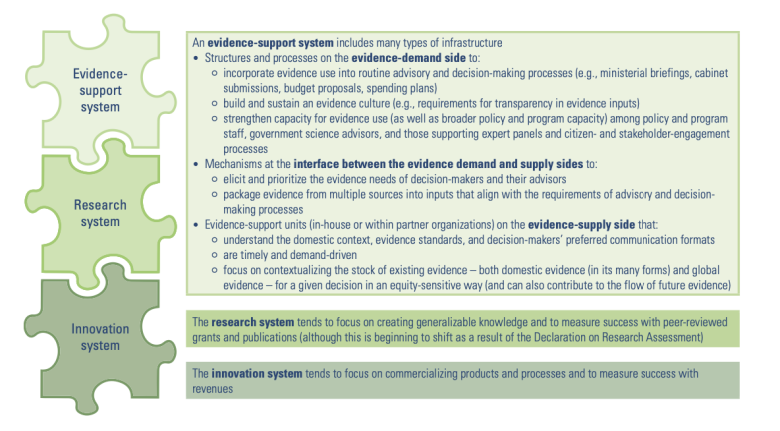
Strengthening domestic evidence-support systems | Global Commission on Evidence to Address Societal Challenges
To formalize and strengthen domestic evidence-support systems, the Evidence Commission’s secretariat and partners in 12 countries are conducting rapid evidence-support system assessments, or RESSAs, and sharing lessons learned through the RESSA Country Leads Group. The goal in each country is to identify what is going well that needs to be systematized and scaled up, and what gaps should be prioritized to fill, and to work with government policymakers, organizational leaders, professionals and citizens to push for improvements. Conducting a RESSA starts with an understanding of what a domestic evidence-support system is and how it differs from research and innovation systems (see Pic1; Link1, p.6). Drawing on websites, documents and interviews, a RESSA involves asking questions (see Link1, p.6-7) about each of the potential features of an evidence-support system (see Pic2 – shown in light green), as a baseline, and taking action based on what is learned.

